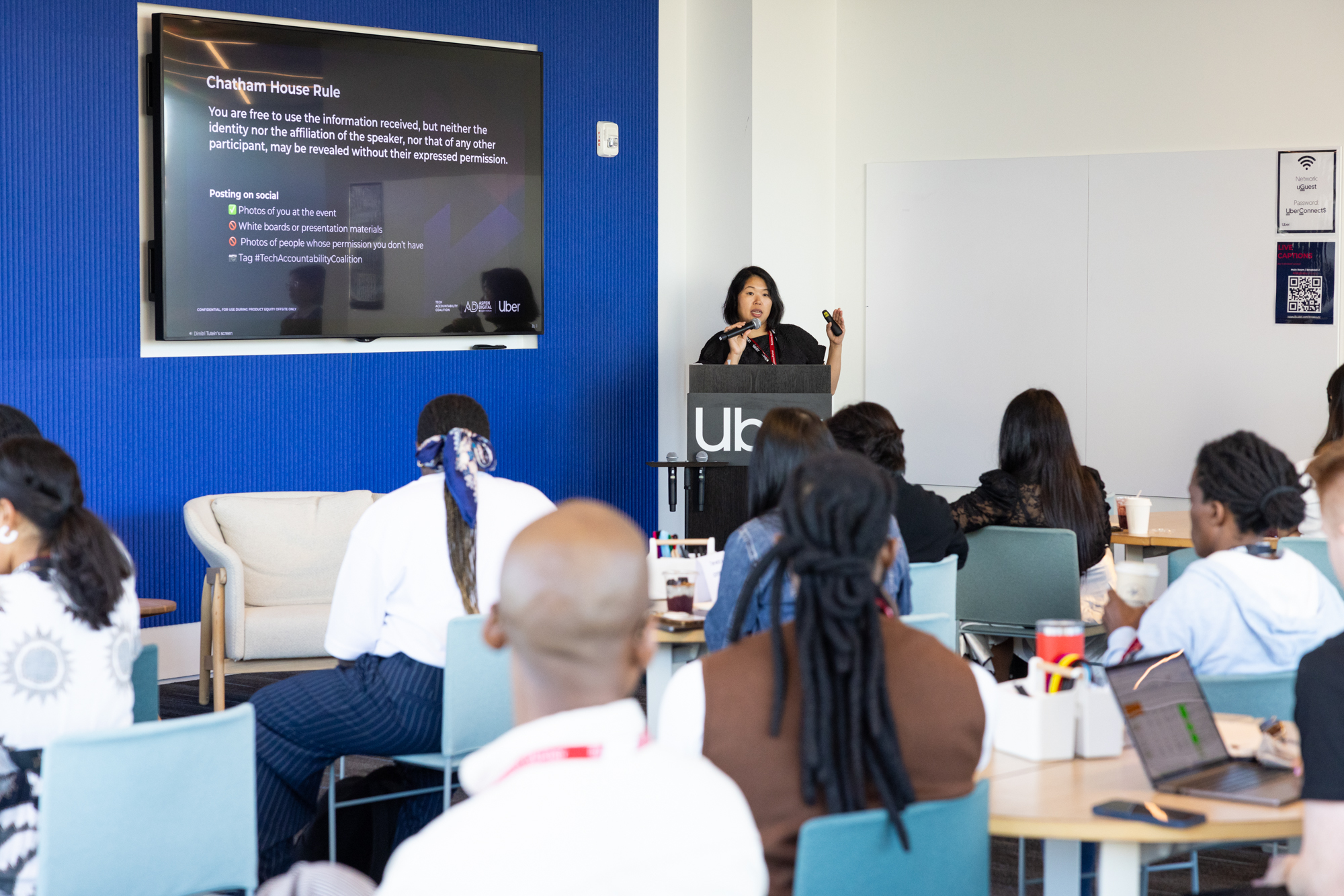Leaders with higher emotional quotient, or “EQ”, bring greater success to their organizations.
We’ve been talking about emotional intelligence for years, but it has never been more important than it is in these very challenging times for ourselves, our teams, our Twin Cities community and our entire nation. We are all confronted daily with fear, disruptions to our lives and real uncertainty about issues related to public health, governance and the future of our economy. We also can reasonably expect a challenging period ahead for team unity and effort, as we know politics has become increasingly divisive and it is a major election year.
These same trends most certainly apply to those of us with leadership responsibilities in IT, InfoSec, Threat Intelligence and Cyber Operations – but we also know that career development in our fields is largely dedicated to binary answers in hard math. The no-nonsense culture of security doesn’t always include the softer skills of human-to-human interaction. So how do we in IT and security boost EQ? There must be a way.
In a management bible for many, titled The Effective Executive, Peter Drucker says “Intelligence, imagination, and knowledge are essential resources, but only effectiveness converts them into results.”
Whatever our role in cybersecurity, as we get promoted within our organizations using formal authority as a bludgeon becomes much less effective. We need to effectively influence a diverse set of people beyond subordinates, to include peers, external stakeholders, and even superiors.
We know how to boost the quantitative performance of our financial leaders: we send them to places like U Penn’s Wharton Business School or the University of Chicago. We know how to boost the business administration skills of general managers who must learn “management by objective” and other components of efficiency and effectiveness as Peter Drucker disciples –we send them to Harvard. We know how accelerate our own teams in cybersecurity with certifications, training, or integrated security studies at institutions like the University of Minnesota’s own Technological Leadership Institute.
For a long time, I didn’t have an answer on EQ myself. I have completed a great deal of leadership training and business-related education over my own career of more than twenty years. At Macalester College, Wells Fargo, and later in a Harvard executive education program, I learned about economics, international development and how to interrogate financial statements. In the Marines and in government, I learned about small unit leadership, operational art, and how to examine people and data quantitatively. In law school, I learned about structured advocacy and how to examine texts. In my cybersecurity career and as a CISSP, I have learned about many additional aspects of security across digital, human and business process domains.
But at a unique executive leadership program called the Aspen Seminar, I learned softer skills in a challenging way. In the spring of 2018, I joined an extremely diverse group of enterprise leaders from around the world and across industries. The one common denominator was that we were executive leaders at an enterprise scale. The verticals ranged as broadly as retail, advanced technology, healthcare services, entertainment, elected state government, government and even a military organization.
Before arriving, I knew little about the Aspen Institute and less about their seminar practice method. I had only read quotes from alums like Netflix CEO, Reed Hastings. Hastings, who attended the seminar in 1999, before he had even launched Netflix, spoke to what he took away from the Aspen Seminar experience:
“The biggest thing I got out of it was the ‘conflict of values’ and seeing the world as a conflict, in many cases, of equally legitimate but different values. That approach has really helped me, in very simple and pragmatic ways, like conflicts between marketing and engineering. Being able to then abstract that out and try to think ‘What are the common values, what are the uncommon values?’ Getting the leaders of those organizations to realize they care about the same things but they had slightly different values, and this was leading to the conflict as opposed to the tactic.”
In sum, it was not the usual PowerPoint deck or brief on diversity training that is half-watched and probably only serves to distract and annoy executives who just pretend to be present while furiously practicing mobile inbox management.
Instead, cell phones were turned off and actually checked in with a staff assistant at the door. People showed up on time and were present for extensive, non-digital, face to face human conversations. Our group of senior leaders was even asked to produce and perform a Greek tragedy on stage from scratch and without guidance.
We spent the week in deep conversation among ourselves and across the ages, as we had a dialogue with the foundational authors of Western humanistic thought. We were challenged each day to explore our own underlying values and discover how our differing assumptions about human nature and the roles of liberty, community, equality, and efficiency drove our decision making and leadership. The Aspen Seminar experience unlocked an awareness about how I see the world, how I view human nature, and how I think a good society looks. It also opened me up to unfiltered exposure from other perspectives.
My favorite economics professor at Macalester College, Peter Ferderer, once challenged me to “examine the assumptions upon which my facts were based.” I didn’t quite understand what he meant at the time, but twenty-five years later in the safety of my Aspen Executive Seminar small group laboratory, we uncovered those assumptions.
It turns out that I assume most people are inherently good but that they are simultaneously challenged with selfish impulses. I learned that my underlying worldview drove me to hold certain beliefs about how to set and enforce policies and about how I approached the task of leadership.
I learned that some of my colleagues see all these things very differently. Although we talked about extremely timely and challenging issues like equality, fairness, racism, social welfare and the role of private organizations in the public good from extremely different perspectives – when we addressed our assumptions in the abstract, it was easier to see alternative viewpoints without judgment.
Since attending, I’ve tried incorporating what I learned at Aspen into my own management style and business strategy. When I consider the values underlying what may appear to be contradictory statements, I find it easier to interact with people who have different viewpoints and explore the space between us without judgment.
If I more consciously take time to think about how that person is also seeking fulfillment of deeper needs like safety, prosperity and fairness – I can allow them the freedom for their own self-expression without reacting or forcing an argument on a surface-level disagreement.
When I do remember to truly appreciate that honest people can have honest disagreements – and use the insight into myself and my own values, I can usually better see paths where I can help move opposing parties to agreement.
It turns out that moving parties toward agreement through compassion, understanding and empathy is exactly what EQ is. It’s unlike any business skills I’ve practiced before, in that it cannot really be learned through a book or a clinic. It requires self-examination and a lot of practice.
I’ll finish with a couple of non-standard bulleted lists concepts for us cybersecurity nerds, in the hopes that we may all seek first to understand each other. Perhaps all of us will find something here to either start or expand a practice of compassion as we grow into increasing leadership roles?
WHAT IS EQ?
One Forbes article makes the case that having a high EQ enables a person to “influence others [and] manage conflict”; another Forbes commentary emphasizes the role EQ plays in one’s ability to respond to change and address the unexpected. Inc. magazine asserts that people in management roles who have low EQ are “not able to effectively gauge the needs, wants, and expectations of those they lead.”
Hallmarks of High EQ Leaders include:
• Self-awareness
• Self-management
• Social awareness
• Long-Term Relationship Management
• Valuing People as Ends in Themselves, Not Seeing “People as Means of Production”
FOR FURTHER READING ON EQ:
“Self-Awareness Can Help Leaders More Than an MBA Can” | Harvard Business Review
“HBR’s 10 Must Reads on Emotional Intelligence” | Harvard Business Review
Andrew Borene is Managing Director for the US Public Sector at Cybereason. Headquartered in Boston, Cybereason is a leading provider of endpoint cybersecurity technology with global customers in government, finance, healthcare and other industries. A former CEO and senior executive, he is also a former Pentagon Lawyer and a veteran US Marine Corps Intelligence Officer who served in the war on terrorism. As an adjunct professor, he has written and edited books and chapters on US Intelligence, Cybersecurity, Privacy, Irregular Warfare and National Security Law. Andrew is a Certified Information Systems Security Professional with more than 20 years experience in security, intelligence and investigations.

